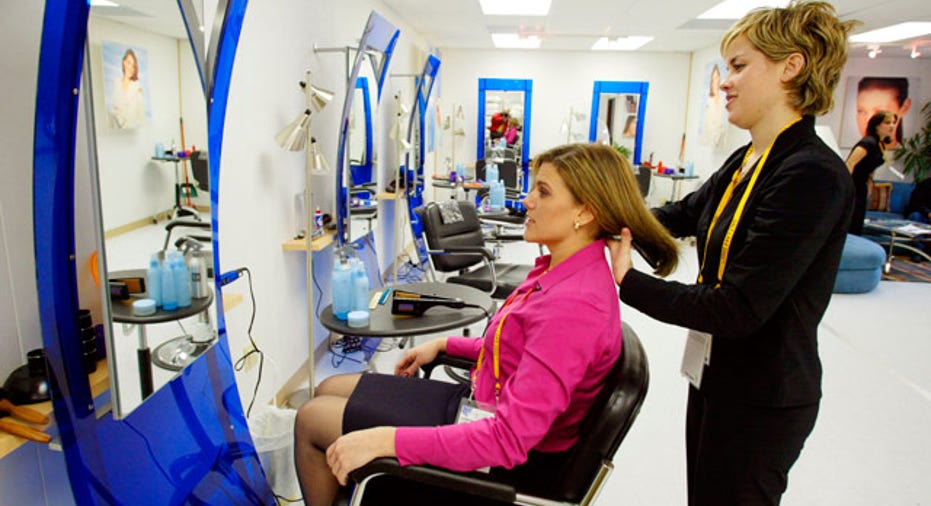Graying Baby Boomers' Quest to Look Younger

The Boomer is a column written for adults nearing retirement age and those already in their golden years. It will also promote reader interaction by posting e-mail responses and answering reader questions. E-mail your questions or topic ideas to thefoxboomer@gmail.com.
"Does she&or doesnt she? Only her hairdresser knows for sure."
This now legendary campaign from Clairol in 1956 was a breakthrough for the beauty industry and removed the stigma of hair color.
One of the most defining features of the baby boomer generation is our love of youth and reinventing ourselves. As we grew up, anything having to do with aging was pushed into the background. But if there is one thing we havent been able to conquer as a generation is time, the clock still continues to tick.
Thanks to the baby boomers and our desire to look young and beautiful, beauty, anti-aging and health-related products and services are flooding the market. Market research firm Global Industry Analysts projects that a boomer-fueled consumer base striving to to keep signs of aging at bay, will push the U.S. market for anti-aging products from about $80 billion now to more than $114 billion by 2015.
Click here to read Expert Tips to Stay Fit and Young
I recently spoke with Professor Robert Binstock, an expert on aging, health and society at Case Western Reserve University about baby boomers desire to look young and what it means for the beauty industry:
Boomer: Do you agree with the thought that boomers want to look younger and will do anything to achieve it?'
Binstock: I have two answers for that. The first being to stereotype all boomers as the same is a mistake. Boomers come from all sorts of social and economic classes and I doubt that those that have lower income and lower social concerns are as crazy about it than wealthier boomers. The second point is I don't think boomers will do 'anything' to achieve beauty or to look younger. Boomers will do a lot of things, but within reason. There were people who had goat glands and goat testicles implanted in them in the 1930s because they thought it was going to make them younger, I am not sure boomers are going to go to that extent.
Boomer: How will this need to look younger affect the anti-aging industry?
Binstock: It clearly will have a growth impact, not because of the percentage of older persons who will do this, but because of the growth in the absolute numbers. When we are talking about a large birth cohort like baby boomers, even if its not every boomer or even if its less than half of boomers who have this mentality, it is still a lot of people. No doubt this will increase the market.
Boomer: What does this mean for businesses and boomers as consumers?
Binstock: Clearly, there will be more consumers. There has been more and more of a shift toward marketing goals of people in all sorts of areas that didn't exist five, or even 10, years ago. For those who consume anti-aging materials and treatments, there are three things to keep in mind:
1) Some of the products can be harmful--such as human growth hormone injections;
2) Consuming anti-aging services and products might divert them from other forms of treatments that may be more effective and are more conventional;
3) Be wary of economic cost; often the products won't do what they claim to do.
Boomer: Do you think that many baby boomers will go further than just dying their hair or using wrinkle cream?
Binstock: : Yes I do. In addition to facelifts, there a whole number of things boomers will try to look younger including getting rid of the bags under your eyes and removing unwanted fat through procedures like bariatric surgery. They will go further than just dying their hair and using wrinkle cream, I think they already are and have been for some time. And to the extent that they can afford it and it makes them happy - more power to them.
E-mail your questions to thefoxboomer@gmail.com.



















